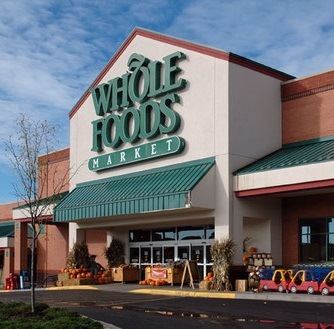Whole Food Closing Prepared Meals Kitchens. Is it Due to Food Safety?
Whole Foods is closing three regional kitchen facilities in Everett Massachusetts, Landover Maryland and Atlanta that made prepared foods sold in its stores, and will instead rely on o utside suppliers.
utside suppliers.
There is conflicting information about the reason of the closings and if it is related to the June 8, 2016 letter from theFDA that claimed: “The inspection found serious violations of the FDA’s Current Good Manufacturing Practice (cGMP) regulations for manufacturing, packing, or holding human food ”in the Everett plant.
The FDA Letter
The FDA found over 20 different violations in the Everett plant and in the letter asserted that “These violations cause the food products manufactured at your facility to be adulterated within the meaning of section 402(a)(4) of the Federal Food, Drug, and Cosmetic Act (the Act) [21 United States Code (U.S.C.) § 342(a)(4)] in that they were prepared, packed, or held under insanitary conditions whereby they may have been contaminated with filth or rendered injurious to health. .. The serious cGMP violations noted during the inspection were outlined on a Form FDA-483, Inspectional Observations”.
The FDA laboratory analysis confirmed the presence of non-pathogenicListeria welshimeri in a swab. The FDA claimed that the presence of Listeria spp., such as the non-pathogenic Listeria welshimeri, detected on a food contact surface, could be an indicator for the probable presence of Listeria monocytogenes in the processing environment.
The FDA did not order the closing of these facilities, despite the many found violations.
Facility closings
The Boston Globe wrote that Whole Foods Market said it had closed the Everett kitchen facility where it created ready-to-eat dishes for more than 70 of the chain’s markets in the Northeast, and instead it had outsourced the food preparation to a network of suppliers.
The company said the closings were not related to health inspections in Everett last year that revealed evidence of Listeria bacteria at the plant as well as other serious health violations. “It was a business decision,” spokeswoman Heather McCready said Tuesday. “It’s based on a movement toward streamlining operations for prepared foods…As part of our ongoing plan to streamline operations, we have decided to leverage the expertise of our supplier network to create some of the high-quality prepared foods sold in our stores,”
The closing of the facilities comes almost a year after the FDA discovered a long list of “serious violations” at the Massachusetts facility during a February 2016 visit.
The three closing of kitchens were the last remaining ones that the brand operated. The closing of the kitchens means that the grocery is officially out of food preparation business. As a result this operation will now be entirely done by outside vendors.
